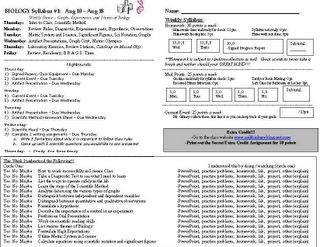1st Period Webquest Assignment
2nd Period Webquest Assignment
Websites to Use:
Cell's Alive
http://www.howstuffworks.com/question464.htm
This article describes the digestive process and answers questions about human stomach cells.
http://www.nature.com/nsu/010301/010301-5.html
Read this description of how human cells were tested in rats as part of a study of multiple sclerosis therapies.
http://www.nature.com/nsu/030714/030714-3.html
This article describes how scientists at Cambridge University in Great Britain are studying the use of frog eggs in the rebuilding of human cells.
http://www.wired.com/news/technology/0,1282,33465,00.html
Scientists in Israel have studied how cells might be programmed to keep watch to signal the body about potential disease.
http://www.ajc.com/health/content/shared-auto/healthnews/brai/507400.html
Learn about the discoveries scientists have made while studying human fat cells.
http://content.health.msn.com/content/article/22/1728_55460
This article discusses how it may be possible to regrow brain cells, a process that was once thought to be impossible.






